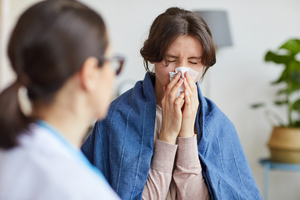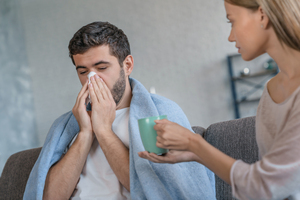Flu shot near me
Own a clinic? Add your location.
Help patients book appointments with you on Solv. It's free!
2 instant-book locations

Available times on Friday

Labcorp at Walgreens
Labcorp at Walgreens
Available times on Friday
Med Save Urgent Care
Med Save Urgent Care

CVS MinuteClinic, CVS MinuteClinic
CVS MinuteClinic

MinuteClinic® at CVS®, N High St, Worthington
MinuteClinic® at CVS®

CVS MinuteClinic, CVS MinuteClinic
CVS MinuteClinic
MedSave Clinic
MedSave Clinic
Walk In Urgent Care, Columbus - N. High Street
Walk In Urgent Care
Walk In Urgent Care, Columbus North
Walk In Urgent Care
Copc Cardiac Testing
Copc Cardiac Testing
Polaris Urgent Care, Polaris Parkway
Polaris Urgent Care

WellNow Urgent Care, Clintonville
WellNow Urgent Care

MinuteClinic® at CVS®, S Old State Rd, Lewis Center
MinuteClinic® at CVS®

MinuteClinic® at CVS®, S Cleveland Ave, Westerville
MinuteClinic® at CVS®

United Urgent Care
United Urgent Care

MinuteClinic® at CVS®, Sawmill Rd, Dublin
MinuteClinic® at CVS®
Close to Home Center
Close to Home Center

MinuteClinic® at CVS®, W Henderson Rd, Upper Arlington
MinuteClinic® at CVS®
Own a clinic? Add your location.
Help patients book appointments with you on Solv. It's free!
About Flu Shots
The flu shot, also known as the influenza virus vaccine, can reduce your risk of getting sick from the flu. Knowing more about the benefits of a flu shot and how it works can help inform you to make the best health decisions for yourself and your family.
Flu shot: Your best bet for avoiding influenza
The CDC describes the flu as a potentially serious disease that can lead to hospitalization and death. It adds that millions of people in the United States get the flu every year and that up to tens of thousands of people die from flu-related causes every year. Complications associated with the flu include ear infections, bacterial pneumonia, and chronic health conditions such as diabetes and heart failure.
The flu vaccine could be your best bet for avoiding influenza, as it is shown to reduce the risk of illness from the flu, along with hospitalizations and flu-related deaths in children, says the CDC. It may even reduce the severity of illness in those who experience breakthrough infections even after getting vaccinated, adds the CDC.
When is the flu vaccine available?
The CDC recommends getting the seasonal flu vaccine in September or October before the flu starts spreading in communities. However, if you do not receive the flu vaccine before the end of October, the CDC suggests getting one anyway, given how the spread of the flu usually peaks in February and continues well into May.
The seasonal flu vaccine usually becomes available in July or August, which is when children should receive the flu vaccine, reports the CDC. Adults are advised not to get vaccinated this early because protection against the flu can decrease over time.
Why do I need to get vaccinated every year?
The CDC recommends that everyone aged six months and older be vaccinated for the flu every year. Flu viruses are constantly changing, which means the flu vaccine must be updated every year to protect against the newest strain. Additionally, the immunity you receive from the flu vaccine gradually decreases over time, which means a yearly shot can provide you with optimal protection, says the CDC.
Who should get the flu vaccine?
The CDC recommends that everyone at least six months of age and older get the flu vaccine every season. However, it adds that some groups of people may need different vaccines than others. For instance, pregnant women should not receive the nasal spray flu vaccine due to an increased risk of potential complications, according to CDC recommendations.
What are my flu vaccine delivery options?
The flu vaccine can be given as an injection or nasal spray. According to the CDC, most flu shots are given in the arm muscle with a needle, though a jet injector may be used in people between the ages of 18 and 64. The nasal spray vaccine is approved only for people between the ages of two and 49, with the exception of pregnant women and people with compromised immune systems, adds the CDC.
Can the vaccine give me the flu or other respiratory diseases?
The CDC states that the flu vaccine cannot give you the flu virus. However, it adds that it may cause many side effects and symptoms that are synonymous with the flu and other respiratory diseases, including fever, cough, headaches, muscle aches, and runny nose.
What kind of protection does the flu vaccine offer?
The flu vaccine can reduce your risk of getting the flu by between 40% and 60%, reports the CDC. It adds that two major factors play a role in determining the likelihood that the flu vaccine will protect you from flu illness. These factors include the characteristics of the person being vaccinated, such as age and health, and how well the current season’s vaccines “match” the flu viruses that are spreading in the community.
Can I lower my risk of the flu without getting a flu shot?
There are many effective ways to reduce your risk for the flu without getting a flu shot, reports the CDC. Exercising regularly, eating healthy foods, getting plenty of quality sleep, and managing stress are some of the most effective ways to maintain a strong immune system and avoid the flu. Other steps you can take, according to the CDC, include washing your hands regularly, covering your mouth and nose when sneezing or coughing, and avoiding close contact with others who are sick.
Flu Shot FAQs
How long does the flu shot last?
The flu shot begins working about two weeks after you get vaccinated. After that, your protection against the flu will decrease gradually over time, reports the CDC. It adds that getting a flu shot every year can help you stay protected against the flu.
How does the flu vaccine work?
According to the CDC, flu vaccines trigger the development of antibodies that can protect you against seasonal influenza viruses currently in circulation. This can reduce your risk of getting the flu or from becoming seriously ill or hospitalized in the event you do get the flu.
Can you get the flu from the flu shot?
The CDC states that you cannot get the flu from the flu shot. However, the flu shot may cause many of the same side effects and symptoms as the flu
When should I get a flu shot?
The CDC recommends getting the flu shot during the months of September or October if you are an adult. It suggests that children get the flu shot as soon as it becomes available in July or August.
Who should not get a flu shot?
The flu shot can be given to anyone aged six months and older, reports the CDC. Therefore, infants under the age of six months should not get a flu shot in accordance with the CDC recommendations. Consult with your doctor to learn more about the benefits and risks associated with the flu shot if you are not sure whether or not you should get it.
How many people experience adverse events from the flu vaccine?
According to the Vaccine Adverse Event Reporting System (VAERS) featured on the CDC website, there were 300 deaths reported to be caused by flu vaccines between the years 2012 and 2022. However, not all healthcare providers report vaccine-related adverse events to VAERS, which means it’s possible the flu vaccine may have caused a higher number of deaths during this period. According to a 2013 study published in Vaccine, some healthcare providers are not familiar with the process of filing a VAERS report or do not know when they are required to file a VAERS report.
What's in a flu shot?
All vaccines contain ingredients that are meant to provide immunity and keep the vaccine safe and long-lasting, reports the CDC. This includes preservatives, adjuvants like aluminum salts, stabilizers like gelatin, egg protein, formaldehyde, and residual antibiotics like neomycin. The list of ingredients in flu vaccines is usually printed on the package inserts and may also be available from your doctor or pharmacist, and the FDA website.
Does the flu vaccine work right away?
The CDC reports that the flu vaccine starts working two weeks after you get it. This is how long it usually takes for influenza antibodies to develop in your body.
What type of vaccine is the flu shot?
There are three types of flu vaccines: a quadrivalent inactivated influenza vaccine (IIV4), a recombinant influenza vaccine (RIV4), and a live attenuated influenza vaccine (LAIV4). The CDC states that no preference is expressed for any one flu shot over another. Your doctor can discuss the differences between these types of flu shots and recommend the best one for you during your appointment.
Where can I get a flu shot or flu vaccine near me?
The easiest and most convenient way to find a flu shot provider near you is to use Solv. Solv features a directory of only the highest-rated healthcare providers, so you can find a quality provider in your area. Visit Solv today to book a same-day or next-day flu shot appointment and stay protected against seasonal influenza.

Updated on Mar 25, 2025
Solv has strict sourcing guidelines and relies on peer-reviewed studies, academic research institutions, and medical associations. We avoid using tertiary references.
Related Searches
DOT Exam
Ear Wax Removal
Physical Exam
Sports Physicals
A1C Test
Allergy Testing
Basic Metabolic Panel
Blood Test
CMP Test
COVID-19 Antibody Test
Cholesterol Test
Drug Test
Flu Test
Glucose Test
Hepatitis test
Mono Test
RSV Test
STD Testing
Strep Test
TB Test
Urinalysis
Vitamin D Test
Aetna Urgent Care
Blue Cross Blue Shield Urgent Care
Cigna Urgent Care
COVID-19
Flu
United Health Urgent Care
» All servicesEveryday Healthcare, Simplified
Expert advice to help you live your best life









